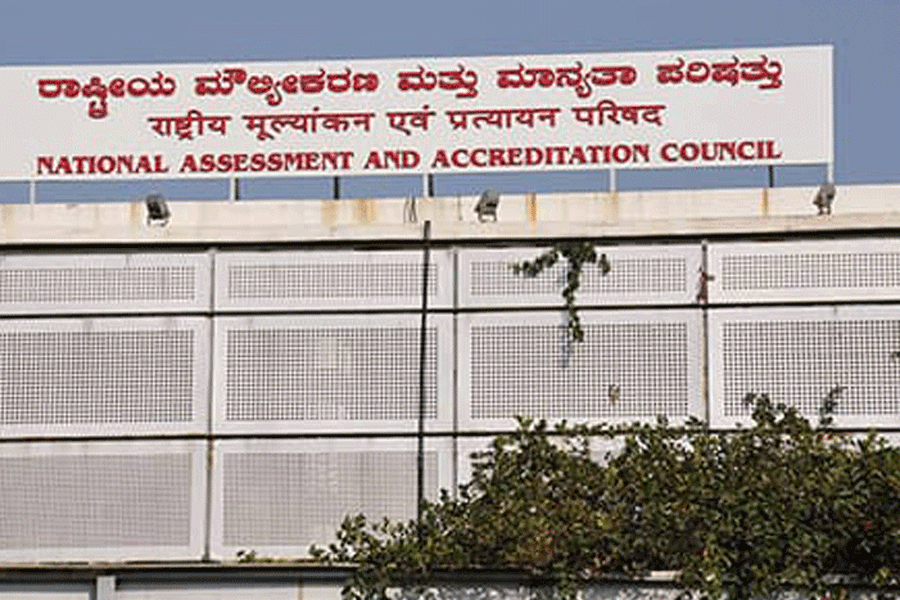IITs decide 'in-principle' to be assessed by third-party accrediting agency


The IITs have decided “in-principle” to be assessed by a third-party accrediting agency, which would end their internal evaluation system.
The IIT Council, the apex body to decide on issues related to IITs, resolved in its last meeting in April to take part in the accreditation process, which is a marker of the quality of the educational institution, its staff and infrastructure strength, the standard of its research, and student diversity, among others.
“In principle, it was agreed that IITs would also become part of the proposed national accreditation process,” said the minutes of the meeting of the IIT Council.
A committee on the accreditation system headed by K. Radhakrishnan, the chairman of the standing committee of the IIT Council and chairman of IIT Kanpur, has also recommended in its draft report that the tech schools should be assessed under the country’s accreditation system.
The decision of the IIT Council and the recommendation of the Radhakrishnan panel endorsing the accreditation of all higher educational institutions (HEIs) have been welcomed by a section of academics who said assessment of the IITs by outside agencies would further strengthen the institutions.
The National Assessment and Accreditation Council (Naac) and the National Board for Accreditation (NBA) are the two government agencies that carry out accreditation after scrutiny of the HEIs. The Naac awards grades like A++, A+, A, B++, B+, B, C and D to general institutions. The NBA accredits tech programmes, such as BTech and MBA, in the binary mode, which means it either accredits a programme or it doesn’t.
The IITs could be accredited by the NBA if the proposal goes through.
The ministry of education, formerly the ministry of human resource development, had advised the IITs to get their courses evaluated and accredited by the NBA. But the tech schools cited their own peer review as a sufficient quality-check mechanism.
The Radhakrishnan committee said: “The process of encouraging IITs to migrate from their internal peer review system to an appropriate national accreditation system is on the anvil.”
Former NIT Rourkela director Sunil Sarangi, an IIT Kharagpur alumnus and former faculty, said the IITs were definitely high-quality institutions, but there was no logic for differential treatment.
“The IITs will be strengthened if they consider themselves to be a part of a wider academic network and subject themselves to the same scrutiny. Students and faculty members of the IITs are the biggest losers of the privileged treatment which has been created by the IIT administrators and the government,” Sarangi said.
He said the criteria for the internal review by the IITs should have been publicised and circulated among other institutions had it been so robust.
“The privileged treatment is hurting the institutes exactly the same way as zamindars’ children getting better grades all the time and eventually getting the false impression that they are the best. Sitting with common people makes you stronger,” Sarangi said.
There are instances of IIT students facing questions about the quality of their degrees since the courses are not accredited.
Accreditation is mandatory for HEIs in developed countries like the US, Canada, Japan, Australia and European nations not only for awarding degrees but also for practising engineering as a profession. These countries follow a binary system of accreditation.